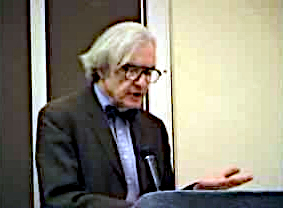Robert Jay Lifton
Robert Jay Lifton (May 16, 1926 – ) is an American psychiatrist and author, renowned for his studies on the psychological causes and effects of wars and political violence, and for his theory of thought reform. He has been a leading figure in the field of psychology, particularly in the study of genocide, totalitarianism, and cults.
Early Life and Education[edit | edit source]
Robert Jay Lifton was born in Brooklyn, New York, to a Jewish family. He attended Cornell University for his undergraduate studies before pursuing medical training at New York Medical College. After completing his medical degree, Lifton served as a psychiatrist in the United States Air Force during the Korean War, an experience that significantly influenced his career and research interests.
Career[edit | edit source]
After his military service, Lifton embarked on a research career that led him to study the psychological effects of war, including interviews with survivors of the Hiroshima atomic bomb and American prisoners of war (POWs) from the Korean War. His work with these survivors led to his seminal book, Death in Life: Survivors of Hiroshima, for which he won the National Book Award in 1969.
Lifton's interest in the mechanisms of thought reform led him to study Chinese brainwashing techniques used on American POWs during the Korean War. His findings were published in the influential book Thought Reform and the Psychology of Totalism: A Study of "Brainwashing" in China. In this work, Lifton introduced the concept of "thought reform" or "brainwashing", detailing how individuals could be compelled to change their beliefs and loyalties through systematic psychological manipulation.
Throughout his career, Lifton has explored the psychological impacts of extreme situations, including the Vietnam War, the Nazi Holocaust, and the Aum Shinrikyo cult's sarin gas attack on the Tokyo subway. His work has been instrumental in understanding how individuals and groups respond to extreme pressures and the processes by which they justify acts of violence and genocide.
Major Works and Contributions[edit | edit source]
Lifton's body of work spans several decades and includes numerous books and articles. Some of his most notable works include: - Death in Life: Survivors of Hiroshima (1967) - Thought Reform and the Psychology of Totalism: A Study of "Brainwashing" in China (1961) - The Nazi Doctors: Medical Killing and the Psychology of Genocide (1986) - Destroying the World to Save It: Aum Shinrikyo, Apocalyptic Violence, and the New Global Terrorism (1999)
In The Nazi Doctors, Lifton examines how German physicians became capable of participating in the Holocaust, performing experiments on humans, and executing the euthanasia programs. This work delves into the concept of "doubling", a psychological mechanism that allows individuals to split their identity to perform acts that are in stark contradiction to their moral beliefs.
Legacy[edit | edit source]
Robert Jay Lifton's research has had a profound impact on the fields of psychiatry, psychology, and the study of genocide and political violence. His theories on thought reform and the psychological mechanisms of violence have been widely influential, providing insights into the nature of human evil and the capacity for change. Lifton has been a vocal advocate for ethical responsibility among scientists and physicians, particularly in relation to issues of nuclear war and biotechnology.
Awards and Honors[edit | edit source]
Over his career, Lifton has received numerous awards and honors for his contributions to psychology and his efforts to promote peace and ethical responsibility. These accolades reflect his significant impact on both academic and public discourse on the psychological effects of war and political violence.
See Also[edit | edit source]
- Psychology of genocide - Totalitarianism - Cults - War crimes
Navigation: Wellness - Encyclopedia - Health topics - Disease Index - Drugs - World Directory - Gray's Anatomy - Keto diet - Recipes
Search WikiMD
Ad.Tired of being Overweight? Try W8MD's physician weight loss program.
Semaglutide (Ozempic / Wegovy and Tirzepatide (Mounjaro / Zepbound) available.
Advertise on WikiMD
WikiMD is not a substitute for professional medical advice. See full disclaimer.
Credits:Most images are courtesy of Wikimedia commons, and templates Wikipedia, licensed under CC BY SA or similar.Contributors: Prab R. Tumpati, MD

